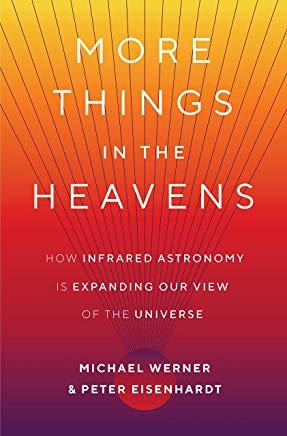
Werner, Michael
A sweeping tour of the infrared universe as seen through the eyes of NASA's Spitzer Space Telescope
Astronomers have been studying the heavens for thousands of years, but until recently much of the cosmos has been invisible to the human eye. Launched in 2003, the Spitzer Space Telescope has brought the infrared universe into focus as never before. Michael Werner and Peter Eisenhardt are among the scientists who worked for decades to bring this historic mission to life. Here is their inside story of how Spitzer continues to carry out cutting-edge infrared astronomy to help answer fundamental questions that have intrigued humankind since time immemorial: Where did we come from? How did the universe evolve? Are we alone?
In this panoramic book, Werner and Eisenhardt take readers on a breathtaking guided tour of the cosmos in the infrared, beginning in our solar system and venturing ever outward toward the distant origins of the expanding universe. They explain how astronomers use the infrared to observe celestial bodies that are too cold or too far away for their light to be seen by the eye, to conduct deep surveys of galaxies as they appeared at the dawn of time, and to peer through dense cosmic clouds that obscure major events in the life cycles of planets, stars, and galaxies.
Featuring many of Spitzer's spectacular images, More Things in the Heavens provides a thrilling look at how infrared astronomy is aiding the search for exoplanets and extraterrestrial life, and transforming our understanding of the history and evolution of our universe.
-- "Science News"






